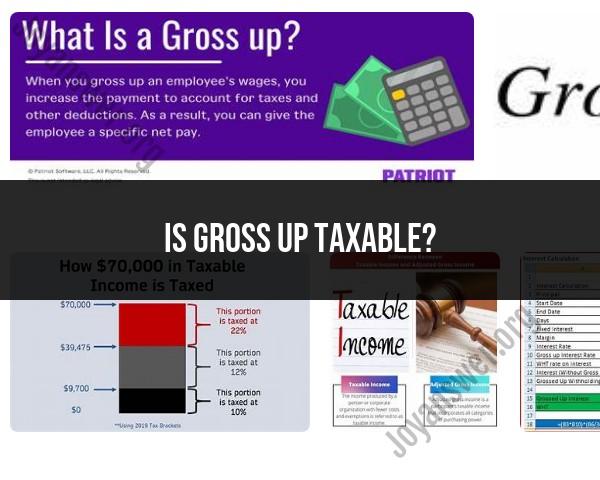Is gross up taxable?
Gross-up payments can be taxable, but the tax implications depend on the nature of the payment and the specific tax laws in your jurisdiction.
In general, a gross-up payment is made by an employer to cover the taxes owed by an employee on a certain type of income, typically a taxable fringe benefit. For example, if an employer provides a bonus to an employee and wants to ensure that the employee receives the full amount of the bonus after taxes, the employer might issue a gross-up payment to cover the taxes that will be withheld.
In many cases, the gross-up payment itself is considered taxable income for the employee. This means that the employee will need to pay taxes on the gross-up payment, just as they would on any other form of income. However, the net effect is that the employee ultimately receives the intended amount after taxes.
It's important to note that tax laws and regulations can vary significantly between countries and even within different regions or states. Therefore, it's always a good idea to consult with a tax professional or accountant who is familiar with the tax laws in your specific jurisdiction to fully understand the tax implications of gross-up payments in your situation.
Unfortunately, your questions about gross-up income are a bit unclear and require some context to provide accurate answers. "Gross-up income" can refer to two different situations:
1. Income tax gross-up: This refers to the practice of increasing the gross amount of a payment to account for income taxes that will be withheld. For example, an employer might gross-up a bonus payment to ensure the employee receives a specific net amount after taxes. In this case:
- Yes, gross-up income itself is subject to taxation. The taxes are calculated on the gross amount, which includes the added amount to cover the withheld taxes.
- The tax treatment generally remains consistent across jurisdictions. The total tax burden will depend on the individual's tax bracket and applicable tax rates.
- There are no exemptions or deductions specifically for gross-up income. However, standard deductions and other tax breaks might apply depending on the individual's tax situation.
2. Gross-up for fringe benefits: This refers to adding the taxable value of a fringe benefit (e.g., company car, employer-provided housing) to an employee's regular salary for tax purposes. Here:
- The added taxable value of the fringe benefit is subject to taxation. Again, the tax burden depends on individual circumstances.
- Tax treatment can vary depending on the specific type of fringe benefit and the jurisdiction. Some countries might have specific rules or exemptions for certain benefits.
- Exemptions or deductions might be available depending on the type of benefit and jurisdiction. For example, some countries offer partial deductions for employer-provided housing.
To accurately answer your questions, I need additional information:
- Which specific type of "gross-up income" are you referring to? (Income tax gross-up or fringe benefit gross-up?)
- What is your location or the jurisdiction you are interested in? (Tax rules can vary significantly between countries and even states/provinces.)













